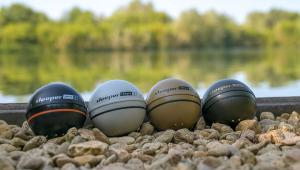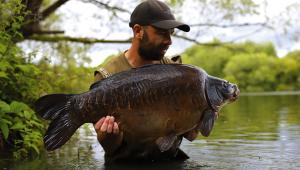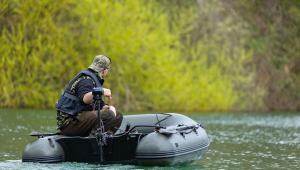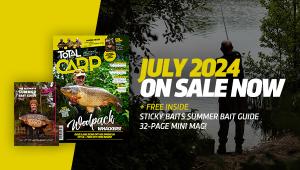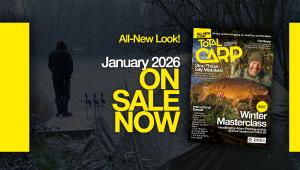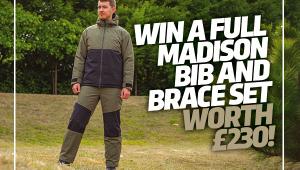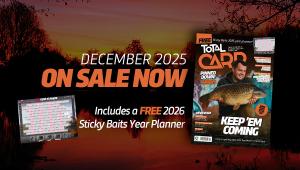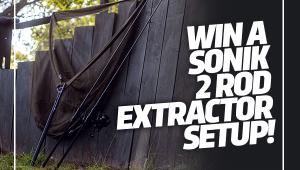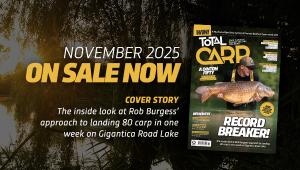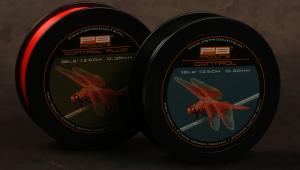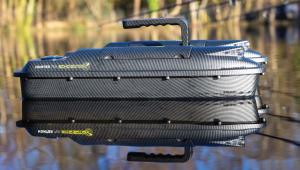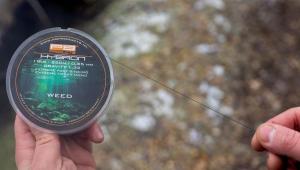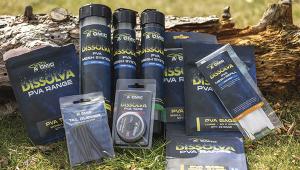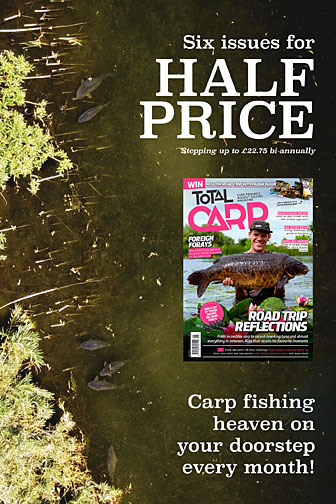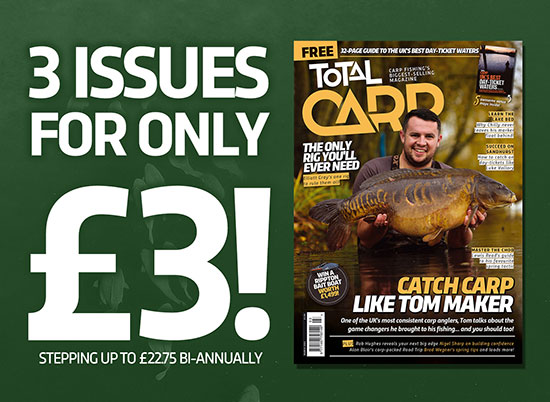Planning Your First Carp Fishing Trip To France
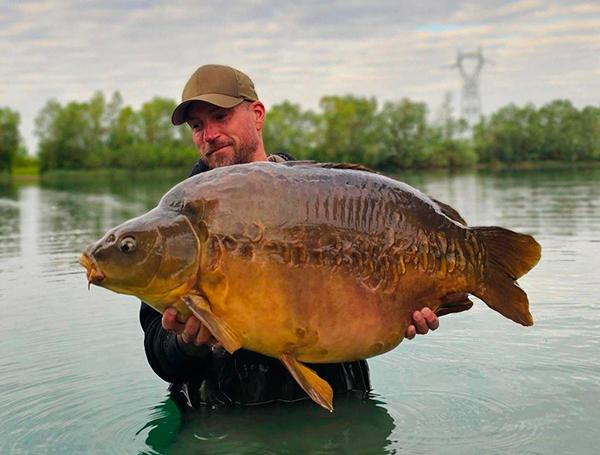
You’ve just booked your first carp fishing trip to France, the countdown begins and the anticipation and levels of excitement ratchet up as the trip draws nearer.
But hold on… have you really done your research to ensure that it is going to be a memorable trip for all of the right reasons? Here’s our expert guide on how to choose the right venue and plan for your first carp fishing trip to France.
Select A Lake That Suits Your Angling Style
Choosing the right water to fish is the most crucial decision that you are going to make. Typically you are going to be fishing for a week. Get the venue wrong and a week can seem like a very long time if you are not enjoying it.
Casting Distance
If your maximum casting distance is 20 wraps then fishing a lake where you need to cast beyond this or you where you need to use a boat to drop rigs, is probably going to push you either outside your angling ability or outside your comfort zone. Your first trip to France isn’t the time to test these skills. Stick within your comfort zone.
Spend plenty of time narrowing it down to a handful of lakes that suit your angling ability and where you can fish the angling techniques and styles you most enjoy. Whether it’s an action water fishing three on the spot or a lake with some under the rod tip stalking opportunities, pick one that aligns to your fishing style. 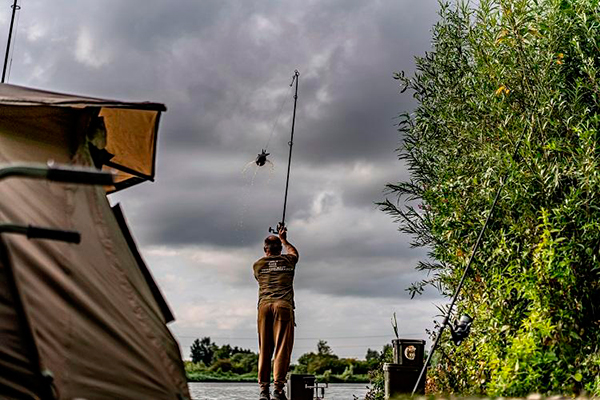 There are hundreds of lakes to choose from in France and if it’s your first time we’d recommend fishing a holiday style commercial venue as opposed to a public water. Companies such as DreamCarp Holidays have a huge choice of carp fishing holidays in France and provide lots of useful information to help you narrow down your search.
There are hundreds of lakes to choose from in France and if it’s your first time we’d recommend fishing a holiday style commercial venue as opposed to a public water. Companies such as DreamCarp Holidays have a huge choice of carp fishing holidays in France and provide lots of useful information to help you narrow down your search.
Lake Topography And Weed
Find out what the topography of the lake is like. This is important for knowing what rigs and tackle you’ll need to fish with. If there are bars and snags then you’ll want to use stronger leaders and hook links.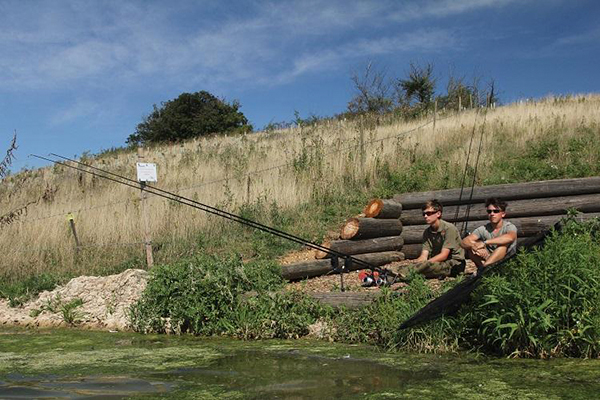 It is especially important to find out if the lake gets very weedy. For many anglers weed is no deterrent, carp love weed and if you are confident fishing weedy lakes the angling can be fantastic. However, if you haven’t fished weedy lakes before it can be incredibly daunting and whether it’s your first trip to France or your 10th, we’d strongly advise not booking a lake that gets heavily weeded if you’re not experienced at fishing weedy lakes.
It is especially important to find out if the lake gets very weedy. For many anglers weed is no deterrent, carp love weed and if you are confident fishing weedy lakes the angling can be fantastic. However, if you haven’t fished weedy lakes before it can be incredibly daunting and whether it’s your first trip to France or your 10th, we’d strongly advise not booking a lake that gets heavily weeded if you’re not experienced at fishing weedy lakes.
Fish Stock
So you’ve found some lakes that suit your style of angling. There are a few more key factors to consider though, before you part with your cash – What is the stock of fish in the lake in terms of numbers of carp and sizes? Do you want a new PB? Do you want lots of action? Most of the commercial style lakes have stocking records, are often netted annually and of course are fished regularly, so it is standard information for the lake owners to disclose the approximate fish stock the lake contains. Social media is also a good source of information. If there’s not much information available of the stock of fish or it’s quite vague it’s a potential red flag and possibly a lake to avoid.
Most of the commercial style lakes have stocking records, are often netted annually and of course are fished regularly, so it is standard information for the lake owners to disclose the approximate fish stock the lake contains. Social media is also a good source of information. If there’s not much information available of the stock of fish or it’s quite vague it’s a potential red flag and possibly a lake to avoid.
Catch Reports
We would highly recommend selecting a lake that has at least a season’s catch reports. Catch reports and angler feedback are a fantastic resource and it’s well worth reading as many as you can. It can give you a valuable insight into how the lake fishes, and if the catch reports are on a social media platform it may also give you the opportunity to speak with anglers who have previously fished the lake.
The more catch reports there are, the more valuable the information is, as it gives a more realistic representation of the lake. Of course there will always be some weeks that fish better than others, but this is usually down to factors such as conditions and angling ability, so don't assume you will necessarily have the same success.
Nuisance Species
Most lakes will have some nuisance species present. Crayfish and a miniature catfish known as a poisson chat are probably the two species that cause the biggest interference to carp anglers.
Just because nuisance species are present it doesn’t mean it is a lake that you should avoid, but it’s worth asking the lake owner how much of an issue they cause so you can ensure you have the right end tackle, hook baits and baiting tactics.
Facilities
Most holiday venues run bookings from Saturday to Saturday. Fishing for a week is a long time so the on-site facilities are actually very important. Having a venue with well-maintained hot showers and a dry place to eat a nice meal can give you a huge lift, especially if the weather has been wet or cold.
Many anglers opt for a venue which can offer a food package, which typically includes a cooked English breakfast and evening meal. The prices are generally reasonable and you’ll usually pay somewhere between £150 and £180 per person. This won’t cost you much more than buying food at the supermarket and gives you extra time on the bank fishing and more time to relax and enjoy the week.
What Time Of Year To Book?
So you’ve now chosen your venue, but what is the best time of year to go? The most popular months to book a trip to France are April to mid-May and September and October.
September and October are classic big carp months. The carp have recovered from spawning and will have put a significant amount of weight back on. The temperatures will be starting to drop as autumn commences and the carp tend to feed heavily before the winter.
April can be a fantastic month to fish as the carp wake from their winter slumber. Usually they are fairly active by April and their guards tend to be down a little bit more having seen no or little angling pressure for the past few months. However, the French weather, like the UK weather is unpredictable and there is no guarantee that conditions will be favourable for carp fishing.
As you get into May the weather is usually more stable, however you then need to be fully aware that the carp are likely to spawn in the months of May and June. Usually early May is okay, but spawning is activated by water temperature, which is dictated by the weather, a factor anglers cannot control.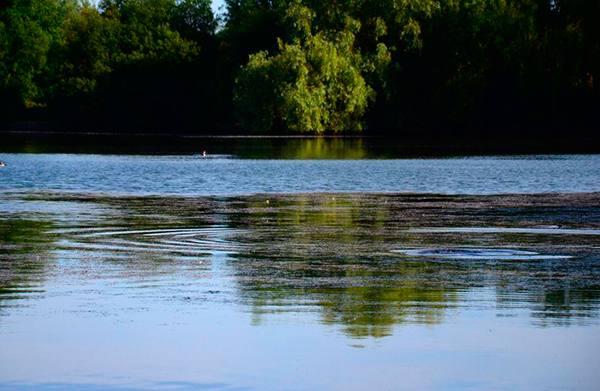 Spawning is usually over by mid-June and the carp start to really get their heads down and feed. Mid to late June can be a great time to go if you do not mind catching carp that are not at top weights and may not be in mint condition.
Spawning is usually over by mid-June and the carp start to really get their heads down and feed. Mid to late June can be a great time to go if you do not mind catching carp that are not at top weights and may not be in mint condition.
July and August tend to be less popular months. As temperatures rise, conditions are often not as favourable with high air pressure and the carp spending more time in the upper lays of the water. The carp will still be off their top weights, however, carp in France are bigger than carp in the UK with many lakes having sixties and seventies present so there is still a very good chance of catching a real monster!
Read the catch reports for the full season and this will give you a very good indication of how the lake fishes throughout the months and help you to make your decision.
What Kit To Take?
If you struggle to get your kit in the back of your car when you go for an overnighter in the UK, you might be wondering how on earth you are going to pack and travel for a week-long trip!
Well, it may not be as challenging as you first think. Let’s start with the kit you probably view as essential for UK carp lakes, that you do not need to take to the vast majority of the French commercial holiday venues.
Many of the lakes will actually insist that you use their nets, cradles and slings. Always check the rules or with the lake owner first, but as the care and safety of the carp is so important to the lake owner’s business, they generally do not want to risk the transfer of any disease from another lake, which can occur if your net is not fully dry and they want to ensure the mats and cradles are the best quality for when their fish are on the bank.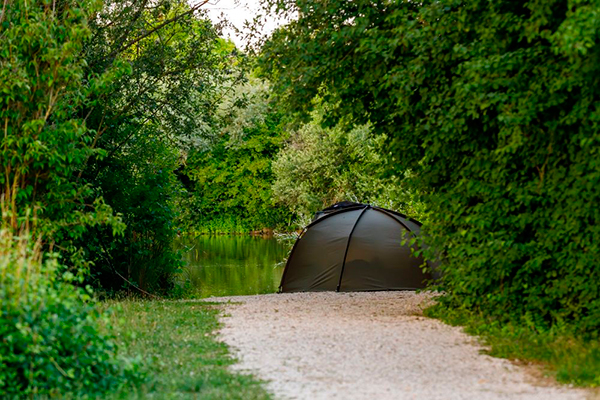 Another bulky item that you can probably ditch is your barrow. Even if you cannot park behind your swim, lake owners want to offer a good quality service to their anglers, after all it is a competitive industry. Many will take your kit using a quad bike with a trailer to your swim or have barrows you can use to get your kit to your swim.
Another bulky item that you can probably ditch is your barrow. Even if you cannot park behind your swim, lake owners want to offer a good quality service to their anglers, after all it is a competitive industry. Many will take your kit using a quad bike with a trailer to your swim or have barrows you can use to get your kit to your swim.
Bait is another large item and something you need a lot of for a week’s fishing, typically 30kg and upwards per angler at the very minimum. Lake owners like to know what bait is going into their lakes and the vast majority will have a range of boilies, particle mixes and pellets that you can purchase from them when you arrive.
Many anglers like to use a bait boat for French trips. Whilst the use of bait boats is not that common on UK lakes, given many French lakes are booked exclusively as long as they are used sensibly, most lakes allow them and they can give you a big edge. The downside is that they are big and take up a lot of room in the car. More good news though, many French holiday lakes have high quality bait boats available for you to rent for a reasonable price.
So, what kit is left to take? Aside from the obvious rods, reels, alarms, bivvy and bedchair, you’ll need to ensure your terminal tackle and line is up to the job. It’s not uncommon for French lakes to have 60lb or even 70lb carp present so there’s a good chance you’ll need to beef up.
Aside from tackle you’ll need to stay warm and comfortable on the bank. Make sure you have a decent pair of waterproofs. They are not only good for wet weather but waterproof trousers can come in handy for handling and photographing carp as it avoids getting your shorts or trousers too dirty. Make sure you have plenty of clothes. If you run out of clean and dry clothes, particularly when the weather is wet, you’re not going to enjoy the trip and that will probably mean you won’t be angling at your best either.
Baiting Approach
You’ve finally arrived at the lake and you are itching to get the rods out and start fishing. But have you given thought to a baiting strategy? Get it badly wrong at the start and it could be a tough week.
This is what we’d recommended… commercial lakes in France are usually fairly pressured and there’s a good chance there will have been anglers on the lake the week before you. If you fill your swim in with bait this could be the kiss of death or at least lead to a slow first half of the week.
Unless you’ve spoken to the departing anglers when you arrive at the lake, you’re not going to know what bait is on the lake bed already. Start slow and fish for a bite at a time. PVA bags or using a bait boat or baiting pole can be ideal for this. Once you’ve caught a couple of fish you can gradually start to increase the amount of bait you are putting in.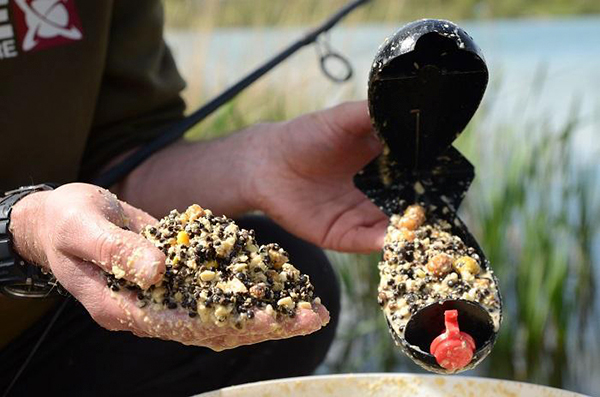 If after a couple of days you are struggling to get the bites, do not be afraid to move. If the lake is big enough it’s well worth baiting one of two other areas, which can be back-up spots in case your first choice swim doesn’t produce or if the fish move off your spot.
If after a couple of days you are struggling to get the bites, do not be afraid to move. If the lake is big enough it’s well worth baiting one of two other areas, which can be back-up spots in case your first choice swim doesn’t produce or if the fish move off your spot.
Above all though, enjoy yourself, don’t panic if the bites don’t come straight away, a week is a long time. Stick to the angling techniques you are confident in and you’ll be sure to stack the odds in your favour.
- Log in or register to post comments
